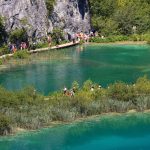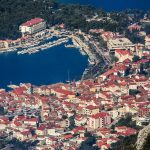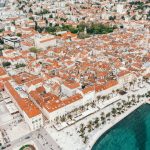As Poslovni Dnevnik writes on the 7th of April, 2020, the Croatian Government’s rescue package has many measures related to the tourism industry, which is Croatia’s strongest economic branch and is most affected by the coronavirus crisis. The measures include job preservation, financial and administrative burdens, wage benefits and tax breaks, RTL reports.
Nonetheless, Croatian tourism professionals are in awe, especially with regard to Croatia’s very many private renters, and almost half of them think they will not be able to support their families without their usual tourist rental income.
Otherwise, we would not be able to take so much as a peek at Gordana’s apartments in Crikvenica as of the beginning of April, because they would be full of readily paying tourists.
“We get cancellations almost every day, from now until June the 15th, everything has been cancelled, whatever we had. Otherwise, we should have entered the full season from April the 6th. We had almost 70 percent of the capacities filled,” says Gordana Derossi, the owner of the Crikvenica apartments.
Last year, Kvarner enjoyed the best tourist Easter in the past three years, and it was believed that this positive trend would continue this year. Opatija makes for a sad image too, with its empty promenades. Private renters are now beginning to pass over from feelings of concern to fear, with their bookings dropping by as much as 50 percent. However, they do say that the Croatian Government is doing its job so far with the introduced coronavirus measures.
“I didn’t use the tax deferral measures, but I do welcome the 50 percent less tourist tax,” Derossi says. However, in March alone, a 70 percent drop in arrivals was calculated, with a 50 percent slash in overnight stays.
“Cumulatively, these figures are slightly lower, however, this is a direct consequence of the coronavirus pandemic, and I believe that unfortunately, in such an atmosphere, we’ll continue with this sort of tourist traffic, which is practically non-existent at the moment, throughout April and May,” said Kristijan Stanicic, director of the Croatian National Tourist Board (HTZ).
Although HTZ is trapped in terms of Croatia’s promotion on the foreign market, they remain present on social networks, and jobs in tourism have been more or less secured by the recently introduced government anti-epidemic measures.
“These are very important for the tourism sector, given that tourism will be the most affected sector in Croatia this year,” Stanicic said.
Because the season is lost, the consequences will be felt for years. Tourism accounts for more than 20 percent of Croatia’s gross domestic product, and it seems that the coronavirus effect is far from over yet.
Make sure to follow our dedicated section for all you need to know about coronavirus in Croatia.










